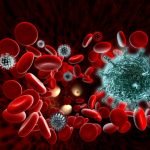We Tend to ‘Copy’ Our Friends’ Eating Habits
Node Smith, ND
The research, by Aston University’s School of Life and Health Sciences, found that study participants ate an extra fifth of a portion of fruit and vegetables themselves for every portion they thought their social media peers ate. So, if they believed their friends got their ‘five a day’ of fruit and veg, they were likely to eat an extra portion themselves.
If your friends eat it, would you? Study says ‘Yes’
But conversely, the Facebook users were found to consume an extra portion of unhealthy snack foods and sugary drinks for every three portions they believed their online social circles did. The finding suggests we eat around a third more junk food if we think our friends also indulge.
Findings provide the first evidence to suggest our online social circles could be implicitly influencing our eating habits
The Aston University researchers said the findings provide the first evidence to suggest our online social circles could be implicitly influencing our eating habits, with important implications for using ‘nudge’ techniques on social media to encourage healthy eating.
In the study, published in the scientific journal Appetite, the researchers asked 369 university students to estimate the amount of fruit, vegetables, ‘energy-dense snacks’ and sugary drinks their Facebook peers consumed on a daily basis.
Information cross-referenced with the participants’ own actual eating habits
This information was cross-referenced with the participants’ own actual eating habits and showed that those who felt their social circles ‘approved’ of eating junk food consumed significantly more themselves. Meanwhile, those who thought their friends ate a healthy diet ate more portions of fruit and veg. Their perceptions could have come from seeing friends’ posts about the food and drink they consumed, or simply a general impression of their overall health.
There was no significant link between the participants’ eating habits and their Body Mass Index (BMI), a standard measure of healthy weight, however. The researchers said the next stage of their work would track a participant group over time to see whether the influence of social media on eating habits had a longer-term impact on weight.
Most recent figures from the NHS’s Health Survey for England showed the following stats
The most recent figures from the NHS’s Health Survey for England showed that in 2018 only 28 percent of adults were eating the recommended five portions of fruit and vegetables per day. In Wales, this was 24 percent, in Scotland 22 percent and in Northern Ireland around 20 percent. Children and young people across the UK had even lower levels of fruit and veg consumption.
Aston University health psychology PhD student Lily Hawkins, who led the study alongside supervisor Dr Jason Thomas, said:
“This study suggests we may be influenced by our social peers more than we realise when choosing certain foods. We seem to be subconsciously accounting for how others behave when making our own food choices.
“So if we believe our friends are eating plenty of fruit and veg we’re more likely to eat fruit and veg ourselves. On the other hand, if we feel they’re happy to consume lots of snacks and sugary drinks, it can give us a ‘licence to overeat’ foods that are bad for our health.
“The implication is that we can use social media as a tool to ‘nudge’ each other’s eating behaviour within friendship groups, and potentially use this knowledge as a tool for public health interventions.”
Professor Claire Farrow, Director of Aston University’s Applied Health Research Group whose work has contributed to the national Child Feeding Guide resource, added:
“With children and young people spending a huge amount of time interacting with peers and influencers via social media, the important new findings from this study could help shape how we deliver interventions that help them adopt healthy eating habits from a young age — and stick with them for life.”
Aisling Pigott, a registered dietitian and spokesperson for the British Dietetic Association (BDA), said:
“Research such as this demonstrates how we are influenced by online perceptions about how others eat. The promotion of positive health messages across social media, which are focused on promoting healthy choices and non-restrictive relationships with food and body, could nudge people into making positive decisions around the food they eat.
“We do have to be mindful of the importance of ‘nudging’ positive behaviours and not ‘shaming’ food choices on social media as a health intervention. We know that generating guilt around food is not particularly helpful when it comes to lifestyle change and maintenance.”
Source:
1. Lily K. Hawkins, Claire Farrow, Jason M. Thomas. Do perceived norms of social media users’ eating habits and preferences predict our own food consumption and BMI? Appetite, 2020; 149: 104611 DOI: 10.1016/j.appet.2020.104611

Node Smith, ND, is a naturopathic physician in Humboldt, Saskatchewan and associate editor and continuing education director for NDNR. His mission is serving relationships that support the process of transformation, and that ultimately lead to healthier people, businesses and communities. His primary therapeutic tools include counselling, homeopathy, diet and the use of cold water combined with exercise. Node considers health to be a reflection of the relationships a person or a business has with themselves, with God and with those around them. In order to cure disease and to heal, these relationships must be specifically considered. Node has worked intimately with many groups and organizations within the naturopathic profession, and helped found the non-profit, Association for Naturopathic Revitalization (ANR), which works to promote and facilitate experiential education in vitalism.










